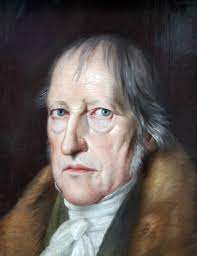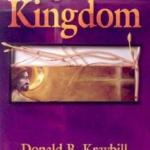Hegel in a Nutshell
Hegel In a Nutshell
Many years ago I took a doctoral seminar entitled “Kant and Hegel” at Rice University. On the first day, the professors said that nobody understands Hegel so the whole seminar would be about Kant’s philosophy. I was disappointed. So, I have spent many years, on and off, studying Hegel’s philosophy especially at it bears on religion and theology. Here is my offering of Hegel’s philosophy “in a nutshell” for those who are interested.
Hegel In a Nutshell
- Hegel’s epistemology: Thought and Being are inseparable; truth is a whole; being and truth are inseparable and historical; universal history is the revelation of ultimate reality: Absolute Spirit. We can know because our minds are connected with the Mind of the universe. The real is the rational and the rational is the real. Human thought, at its best, is always already thinking God’s thoughts after him just as God/Absolute Spirit is coming to know himself/itself through the best of human thought. (For Hegel, epistemology and ontology/metaphysics, cannot be separated as in Kant’s philosophy.)
- Hegel’s ontology/metaphysics: Reality is being-in-becoming; it is infinite and personal, not substance but subject. As such, it is coming to realize itself in relation to what is not itself—the world and especially humanity. Yet, what is not itself—the world, humanity—is never separate from it or it from that. History is the unfolding of Absolute Spirit coming to self-awareness through humanity’s discovery of God/Absolute Spirit. “Without a world, God would not be God.” God/Absolute Spirit is ultimate reality; the “true infinite” (warheit Unendliche) that includes the finite.
- Hegel’s religion: Christianity is the highest form of religion because it expresses in symbolic forms the truths of philosophy. “Incarnation” represents the unity of God/Absolute Spirit and humanity; “Atonement” represents God’s/Absolute Spirit’s experience of self-sacrifice in the agonies of history (the “speculative Good Friday”).
- Hegel’s history: Human history is the discovery of God/Absolute Spirit in which God/Absolute Spirit discovers (comes to know) himself/itself. The history of human culture is one of coming into union, synthesis, of opposites, thesis and antithesis. Each new synthesis becomes a thesis confronted in conflict by its antithesis, but, eventually, all conflicts will end in a “unity of humanity” which is symbolized in Christianity by the kingdom of God.
- Hegel’s reason: Hegel was dismayed by Kant’s attack on all metaphysics that led to the impossibility of knowing God or anything “in itself” (the noumenal realm), only knowable are things-as-they-appear (the phenomenal realm). Hegel knew that there was something esoteric about his philosophy; he drew heavily on the esoteric traditions of Christian mysticism. Yet, he believed his philosophy was rational by which he meant perfectly coherent. There was no way into Hegel’s philosophy “from the outside,” but once “inside” it makes more sense, is more rational, than any alternative and overcomes Kantian skepticism.
- Hegel’s influence on Christian theology: Nineteenth century optimism about history; twentieth century interpretation of God as becoming (process theology, Eberhard Jüngel, Hans Küng, Wolfhart Pannenberg).
- Christian reactions to Hegel: Kierkegaard’s furious reaction (over-reaction?) that God is wholly other and faith is a “leap” and the individual is not part of a grand system; dialectical theology’s (Barth, Brunner) reaction that God is in no way dependent on creation. (Ironically, however, both Barth and Brunner emphasized that God is what he does and God’s revelation is his self-communication; there can be no separation between God and his revelation. Some critics such as Hans Urs von Balthasar [Catholic] have “heard echoes” of German Idealism, Hegel, even in Barth’s theology!)
*Note: If you choose to comment, make sure your comment is relatively brief (no more than 100 words), on topic, addressed to me, civil and respectful (not hostile or argumentative), and devoid of pictures or links.*














